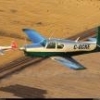changing oil from phillips to shell
-
Members Online
- gear down
- PT20J
- Hall Liu
- ta2too
- DavePage
- wombat
- mooneyflyfast
- Need4speedkt
- AndreiC
- Stubby
- Utah20Gflyer
- Matt103187
- 201Steve
- LOCOLJ
- TCC
- banjo
- neilpilot
- flyfast
- hazek
- jjvanl
- Mister_Bevilaqua
- TaildraggerPilot
- Lovestone
- IvanP
- DJE22
- Slick Nick
- Nico1
- Martin S.
- Mooney Fan20
- FlyingScot
- Hank
- 00-Negative
- 1980Mooney
- Andy95W
- CCAS
- Planegary
- GaryP1007
- jetdriven
- onegreen
- 1967 427


Recommended Posts
Join the conversation
You can post now and register later. If you have an account, sign in now to post with your account.